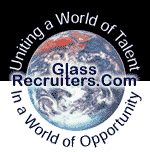The best rule of thumb is to dress in a professional businesslike manner. Always wear what you would wear if your biggest customer were coming to visit! In most cases, that would require a suit or conservative sport coat and business slacks with tie. Although accepted practice is changing we still suggest that women should never wear pants. High heels should also be avoided since it is unlikely they will be the normal footwear for either a factory or the daily routine of an office. Shoes should always be polished and not severely worn. Men’s suits should be blue, black or gray if possible as well as cleaned and pressed. Ties should not exceed 3½” in width and be conservative in nature. White shirts are still preferred but pastels are certainly acceptable if properly accented.
One of the side benefits of being professionally dressed is that it makes you feel more confident and at ease with a stressful situation. Skillful interviewers will often invite you to remove a coat or tie during the interview and you may do so if offered – especially on tours of hot or dirty areas. Safety glasses are generally required in these areas as well as ear plugs and safety helmets. As a guest, be sure to cooperate with these requests readily.
Obviously, it is important to bathe the day of the interview as well as to trim and clean fingernails. You know when and how to prepare your hair for “big events” like an interview so plan your haircuts, washing and styling accordingly. Always have your hair trimmed at least monthly, and men should avoid hair below the collar or over the ears. While a certain percentage of employers still object to facial hair, a neatly trimmed mustache or beard generally will not reduce your odds of interviewing success.
Avoid heavy make-up, colognes or perfumes! You are there to get a job, not a date! Also minimize jewelry to prevent projecting an image that will distract from the completion of your mission. You want to present a clean-cut, conservative image to a potential employer. Your appearance will be complemented by your manners and demeanor.
Be courteous, polite and appreciative (but not subservient) with all you meet – from the Receptionist to the President. You should project a confident (but not cocky) presence to all who meet you and you can easily keep your enthusiasm maintained by simply focusing on the potential rewards of this process, a better job!
Good etiquette begins before you arrive! If you are detained for whatever reason, stop and call. We will have provided you the number for that purpose and the old saying applies – “If you call, you’re never late.” Plan to be at the location 10-13 minutes early to allow enough time to find the interviewer’s office and nearest lavatory. A last minute restroom stop is always in order and a few deep breaths will help diffuse any case of “the nerves.” If you are asked to wait, make use of the time by reviewing information about the company, who you’ll be seeing, etc.
Drug tests are a way of life in American industry today. You may be asked to participate in one during a visit and should do so willingly. Cooperating with this and other requests will help form the image of the type of candidate with whom people like to work. Smoking is another “hot potato” these days. Avoid it even if the opportunity is offered – the odor your clothes will carry for the rest of the interview is too high of a price to pay. Likewise, gum chewing is off-limits and breath mints should be used only when you have time between interviews.
Applications for employment seem redundant to resume carrying applicants – especially when the company has even more extensive information about you from us. Nevertheless, if asked, you should cheerfully complete the employer’s application as requested. Having your resume and reference list at your command will expedite this process.
Unless pressed for specifics, always leave the “expected compensation” area blank or simply put “Negotiable.” However, you should always complete the “current compensation” questions with your total current compensation package spelled out (including base salary, bonuses, commissions and overtime).
Always address the interviewer as Mr. or Mrs. – until asked to do otherwise. This denotes respect for his or her position and does not rush familiarity. Try to remember the names of the people you meet. It is appropriate to give them a business card and to ask for one of theirs.
Interviewing during meals can be difficult because it involves two functions of the mouth that are not very compatible – talking and eating! There are, however, some hints that can make this a more positive experience. Order light foods that are not greasy or messy. Overstuffed sandwiches can be as deadly as spaghetti! Parallel your host’s tastes and price selection whenever possible. Ordering dressing on-the-side is a way of minimizing potential messes with tossed salads. Avoid finger foods or those requiring de-boning such as fish or fowl. Pause between bites to talk – and rest your utensils on your plate while you talk. The best practice is to never drink alcohol during a business meal. If pressed, order only one, and not exotic mixed drinks. A glass of white wine or a lite beer reflects the tastes of a much more disciplined person than an order for a double martini! Likewise, avoid smoking if at all possible, but if you must, limit it to after dinner. Be courteous and cordial to all waiters and serving people. Don’t offer to pay the bill – an employer would not have invited you if they did not expect to pick up the tab. Finally, be sure to thank your host for the meal and the chance to get to know him or her on a more personal basis.







